Statement
Kashmir_2050_Rejuventaion of dal lake highlights the urge for refinement of construction methods and techniques / new habitats in a war-torn scenic splendor – paradise, and also the most dangerous place on earth where advanced architectural techniques provide new perspectives and efficient alternatives to tackle the problems of relocation, haphazard urbanization, loss of water bodies and also takes architects into spotlight and questions their role in a conflict zone and how possibly as designers can contribute to help people see a better infrastructure/future and skid away from the pain and trauma that they have faced because of the constant nuclear powers facing off a small space.
Scientific Interest
As Kashmir is facing an increasing frequency and intensity of disasters that are natural as well as man-made, the impact on the economy and the construction & development sector is massive, it is obvious that the infrastructure built several years ago cannot fulfill its purpose. However, erasing the past and culture cannot be the solution. The new building regulations and lack of material availability have caused a reduction in climate and culture-responsive construction. There needs to be an interdisciplinary approach cutting across social, political, and environmental disciplines, all strengthened by the wisdom of the community.
Introduction
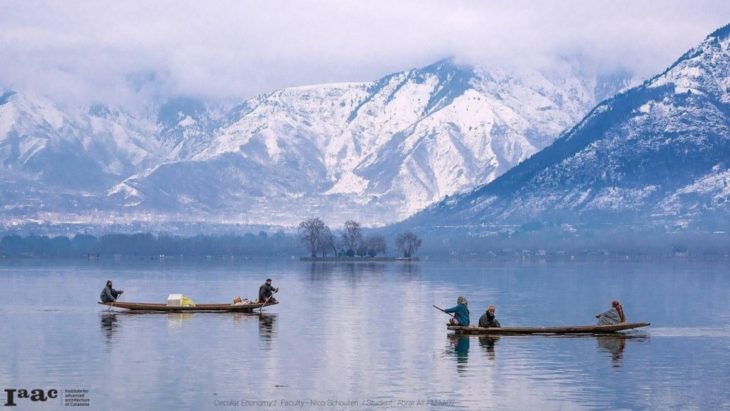
Dal lake – ” Jewel of Srinagar”
Different Sections of the lake
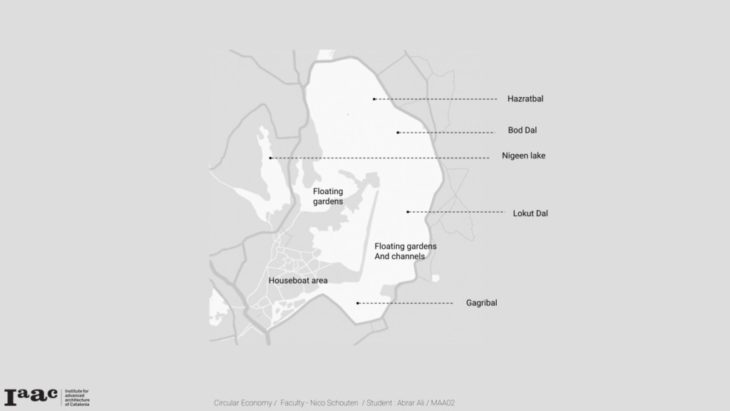
Figure showing different Sections of the lake
Context of the lake
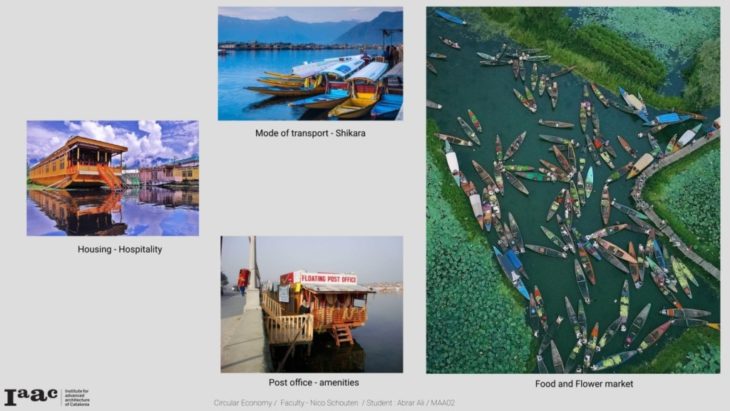
Figure showing the context of the lake
Systems Map
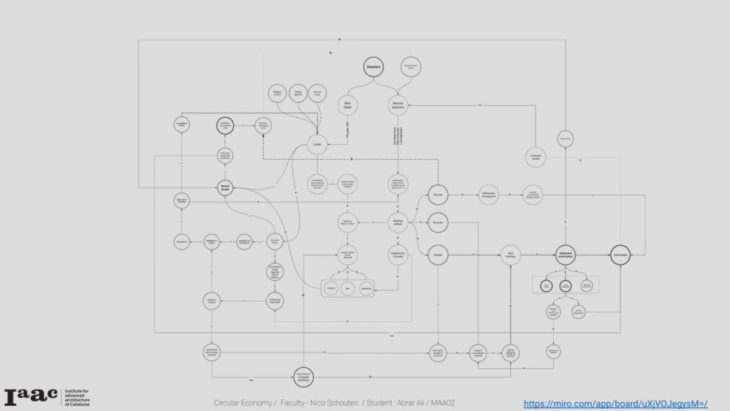
Feedback Loops
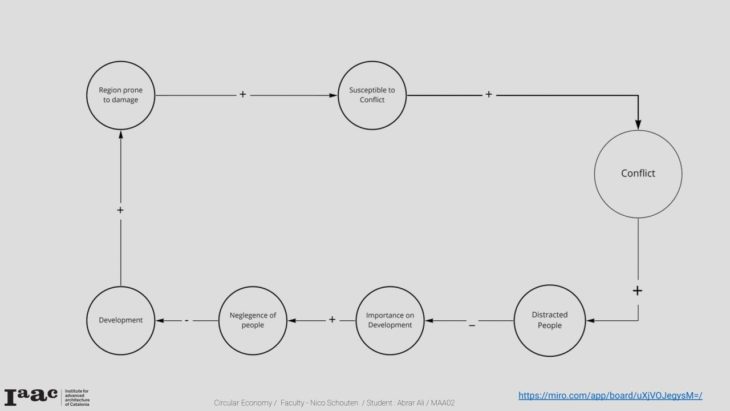
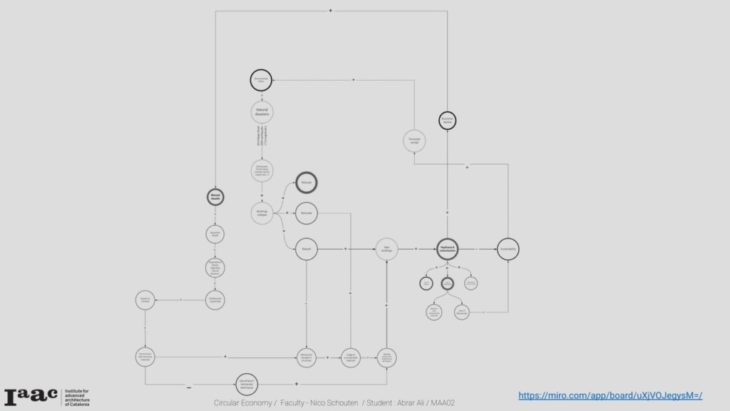
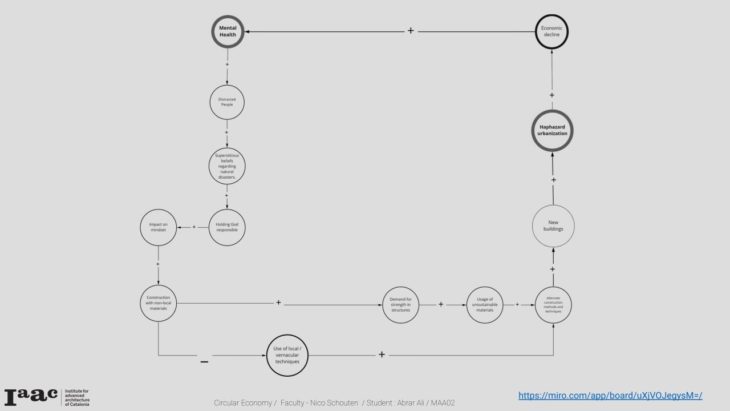
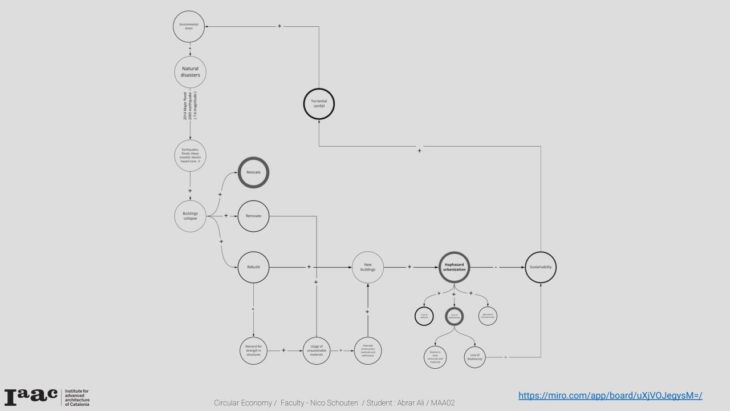
Iceberg Model
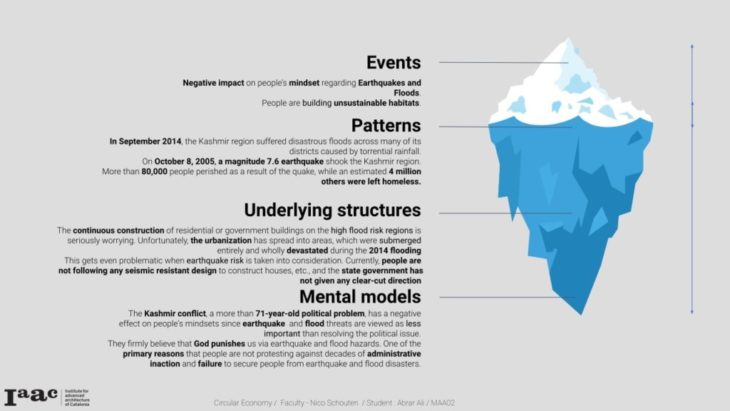
Figure showing various layers of the iceberg model
Opportunity // Problem
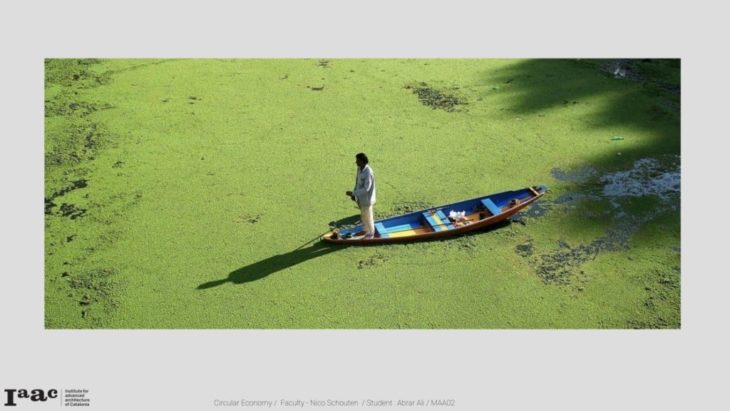
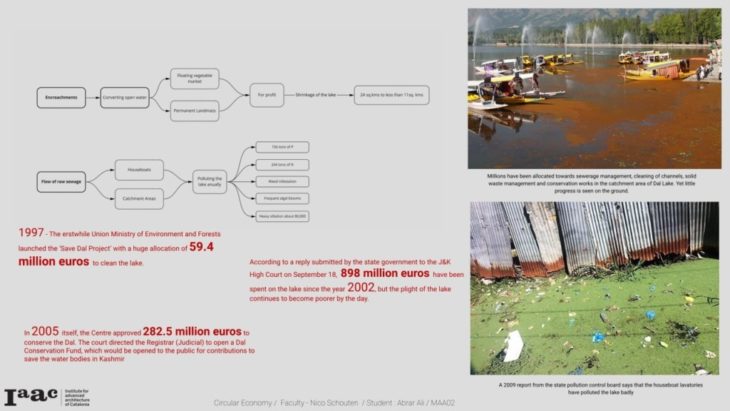
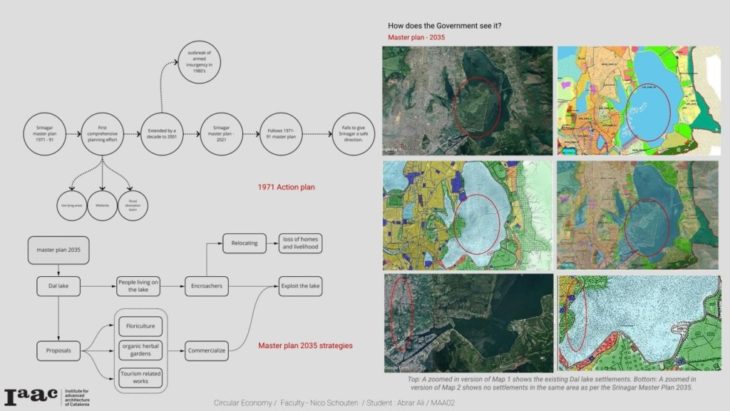
Seven pillars of circular economy
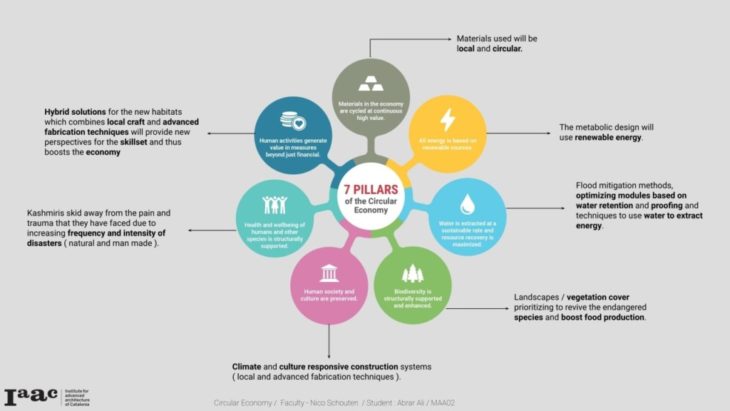
Vision for the project
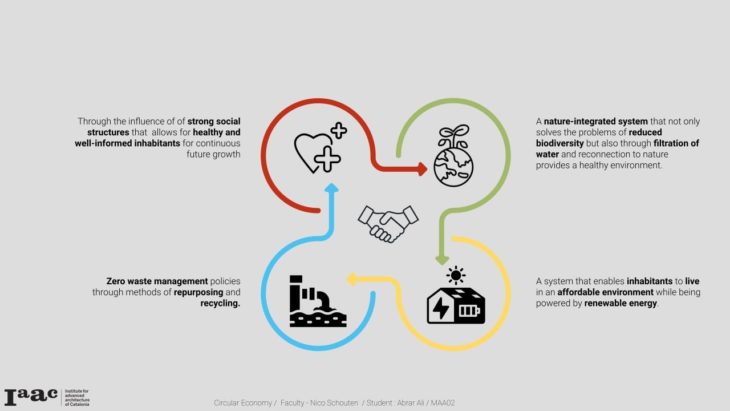
Implementation
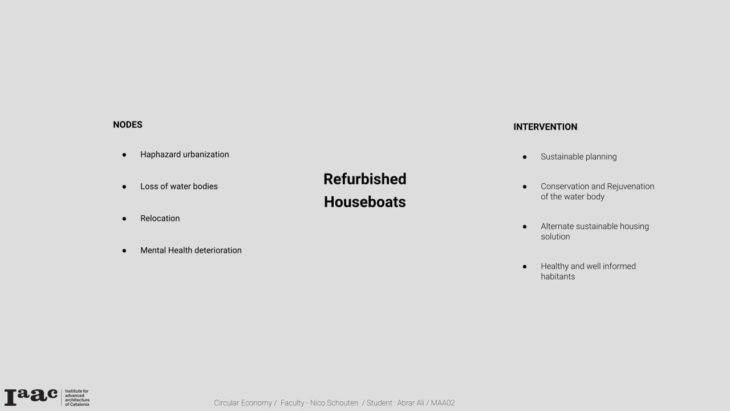
Figure showing nodes and the intervention
Intervention
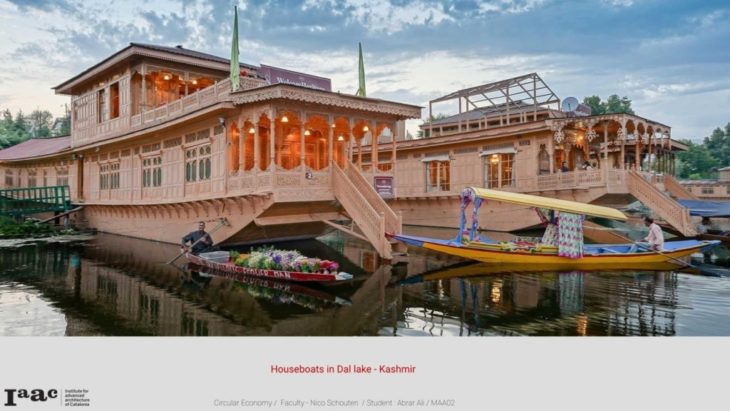
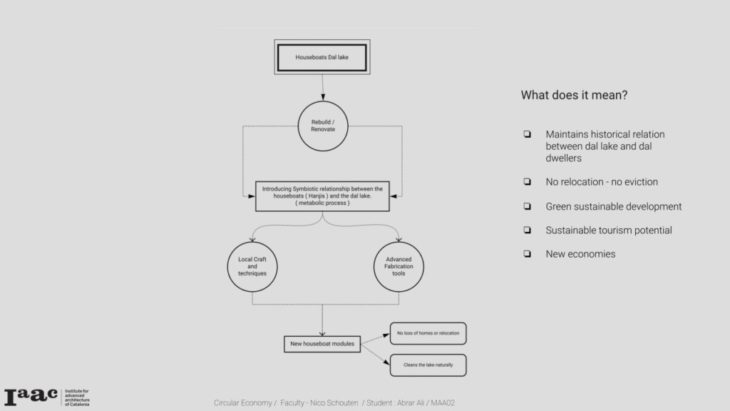 Who are the stakeholders?
Who are the stakeholders?
who is going to get the most out of it?
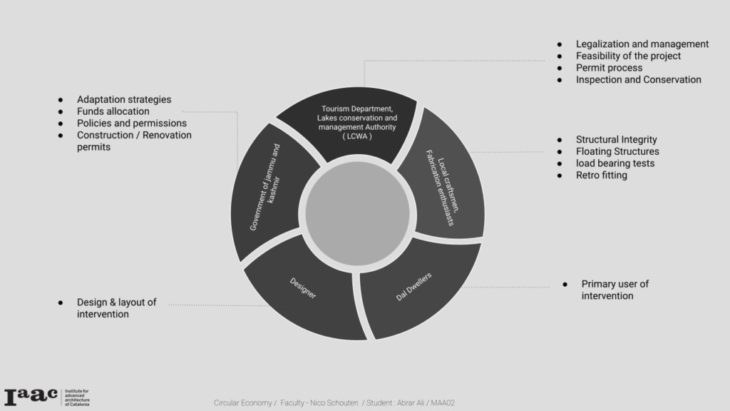
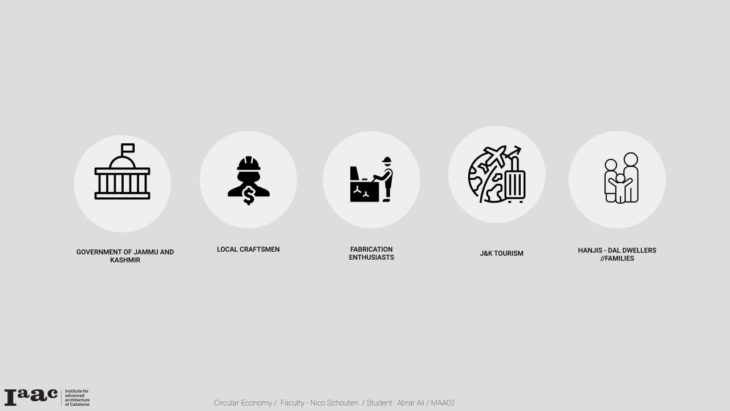
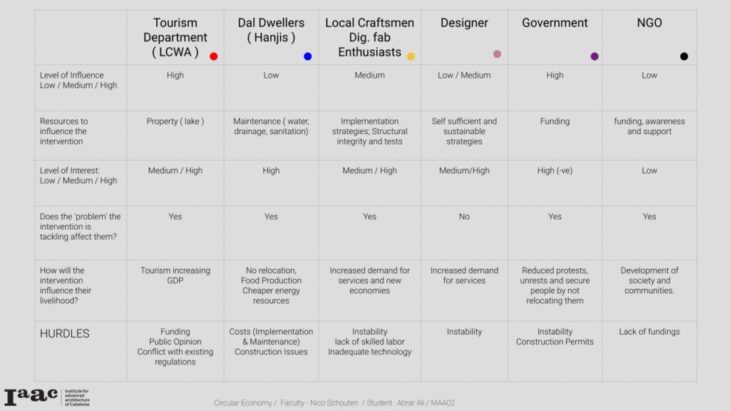
Figure showing level of interests and level of influence for the stakeholders
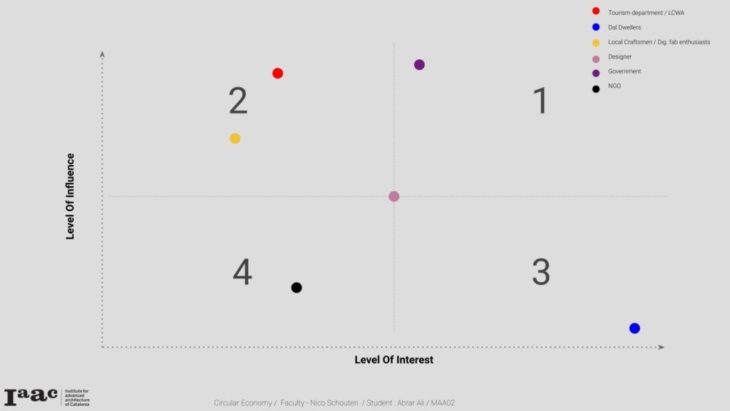
Figure showing Graph – level of interest vs level of influence
Implementation // Validation
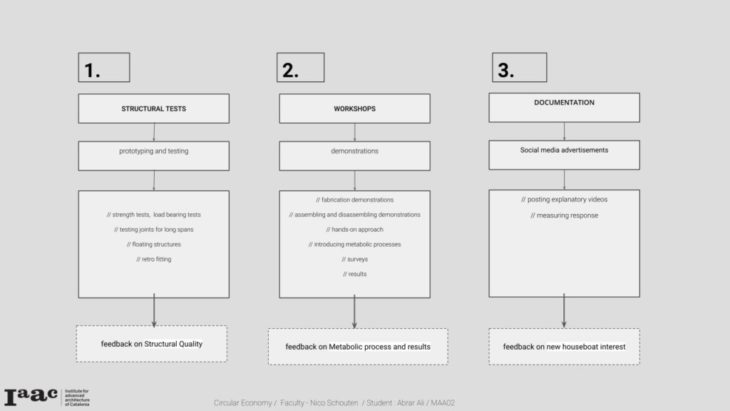
Implementation
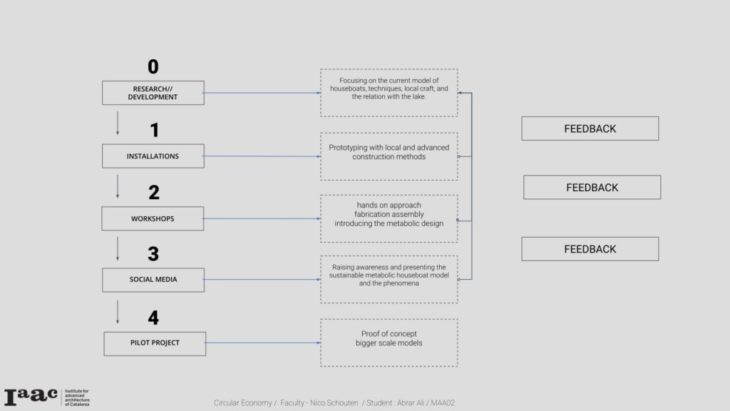
Implementation Strategy
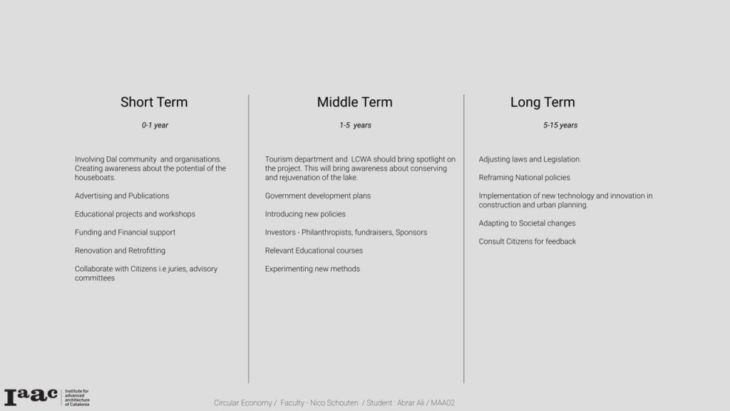
Unintended consequences and Preventive Strategy
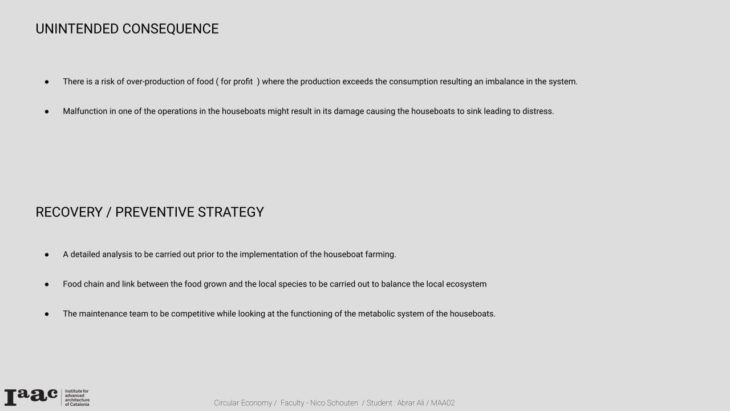
Kashmir_2050_Rejuventaion of dal lake is a project of IAAC, Institute for Advanced Architecture of Catalonia developed in the second year of the Master in Advanced Architecture in the seminar Circular Economy in 2021/22 by Student: Abrar Ali and Faculty: Nico Schouten
